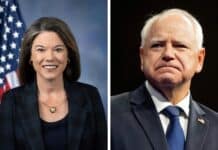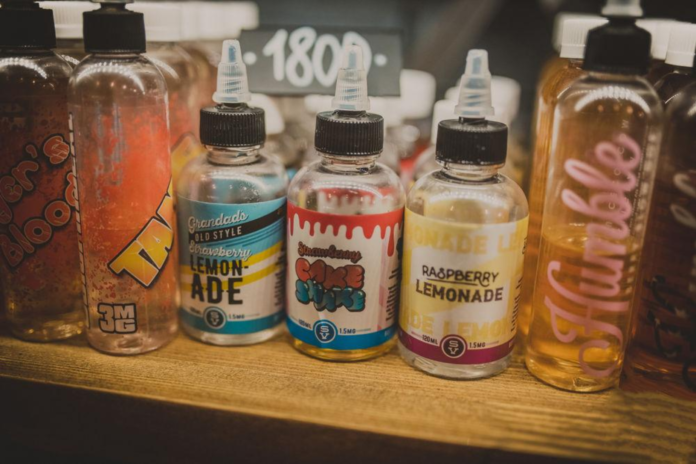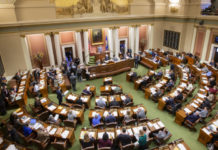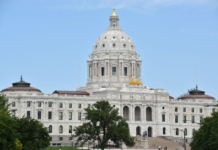The House Health and Human Services Policy Committee cleared legislation seeking to ban flavored nicotine and tobacco.
Rep. Laurie Halverson, DFL-Eagan, sponsored HF 3032 to “fight the youth tobacco epidemic” in Minnesota, citing kid-friendly nicotine vape flavors such as Skittles and cotton candy.
“Flavors are luring millions of kids into addiction, and keeping communities of color addicted to deadly menthol cigarettes,” she said.
The Committee heard public testimony on Wednesday.
Lori DeFrance, MD and president of the American Academy of Pediatric Minnesota Chapter, said that minors are vulnerable to addiction because their brains are still developing.
“Kids know that cigarettes are bad for them … but with e-cigarettes and other flavored tobacco products, they don’t perceive the danger,” she said.
DeFrance said that more than 80 percent of youth who started consuming tobacco reported they began with flavored products.
Douglas Yee, MD and Director of the Masonic Cancer Center at the University of Minnesota, supported the bill.
Yee said that almost 6,000 Minnesotans die every year from tobacco-related cancer.
“While we acknowledge that adult smokers may also prefer flavors and products such as e-cigarettes, we also need to protect against another generation becoming addicted to nicotine,” he said.
Guy Bentley, director of consumer freedom at The Reason Foundation, opposed the ban.
Bentley said the tobacco age was already raised to 21, the most popular flavored products have been made illegal, and that banning flavored nicotine would harm public health.
“The scientific research from the U.S and the EU proves beyond any reasonable doubt that e-cigarettes are safer than combustible cigarettes,” Bentley said. “And they are more effective than traditionally consumed replacement therapies that help smokers quit, as the New England Journal of Medicine has shown.”
He cited a study from the Yale School of Public Health: “A ban on flavored e-cigarettes would drive smokers to combustible cigarettes, which have been found to be the more harmful way of getting nicotine.”
Minnesota’s 95 percent e-cigarette tax has already caused 32,000 adults to continue smoking cigarettes, Bentley said, citing a National Bureau of Economic Research study.
Josh Hassing, general manager of the Hopkins-based Vaping Studio, said that banning nicotine flavors would lead to similar outcomes as alcohol prohibition, in which black-market liquor production killed roughly 10,000 Americans within 13 years.
“Prohibition only leads to bootleg products on the black market, which negatively impacts public health,” Hassing said.
Rep. Kristin Robbins, R- Maple Grove, questioned why the bill sought to ban flavors instead of regulating nicotine concentration levels, adding that her constituents said vaping helped them stop smoking cigarettes.
Halverson claimed that e-cigarettes weren’t used as a nicotine cessation device.
The bill was recommended, as amended, Friday to the Committee on Commerce.












